|
by Stephanie Vavilala, Ed.D, BCBA, LMHC, RPT-S AWETISM WONDERLAND It’s Autism Awareness Month, or what we call AWEtism Awareness Month. There are many ideas and concepts about autism that may be completely foreign to anyone not immersed in the autism world. This special month sheds light on all things autism!  We are Awetism Wonderland, an autism center located in St. Augustine, right off of I-95 and International Gold Parkway. Our AWEsome kids come to our center for a variety of needs including our academic program and therapies including ABA (applied behavioral therapy), Anat Banial, physical/speech/occupational and so many more that are essential in helping people living with AWEtism. What is Autism? Autism Spectrum Disorder (ASD) is a neurodevelopment disorder that impacts how someone relates and communicates with the world around them. Because the spectrum of how it affects people is so vast, there isn’t one specific symptom that you can pinpoint that everyone with autism has. Many people with ASD have difficulty with social interactions, have repetitive behaviors (referred to as ‘stimming’), obsessive about things they are interested in, and impulsive behaviors. Embracing Awetism At Awetism Wonderland, we embrace the “awe and wonder” of AWEtism by approaching therapies and academics through the concept that people with AWEtism see the world differently through processing what comes into their senses differently. Many traditional AWEtism therapies, applied behavioral or “ABA”, take a corrective or squashing approach in hopes of extinguishing the undesired behavior in order to try to make the child behave like more of a “neurotypical” child. Instead, we fully believe in embracing who the child is and where they are to guide their therapies to helping them achieve success in whatever they’re looking to achieve success in. Through our approach to ABA therapy, we put a heavy focus on life skills that can be replicated at home, school, or elsewhere so that children on the spectrum can gain more independence. This could look like anything from brushing their teeth or combing their hair to cooking themselves a simple meal. Academic Support One of our primary focuses is also on academics. While we are not a school, our academics program was created to support families of children with ASD. It can be very difficult to navigate the public school system, so many parents choose to home school. Unfortunately, many parents find themselves frustrated from not being equipped to teach someone with ASD, much less be a teacher at all. Our academics program caters to each individual students’ pace and differentiated academic needs. We start with a free academic assessment to determine accurate student placement as the foundation of their individualized education and understanding their current academics and learning style. Academics are addressed in a comprehensive and cohesive manner with all components the clinic has to offer to provide an all around functional approach for the child’s life. Our classes take place in a small group setting with individualized academics, social skills infused within the academic group settings, and in collaboration with all of the other therapeutic providers treating the child so as to support a common plan with shared goals. If you’re interested in our center, check out our website atawetismwonderland.com. Together, we can help your AWEsome kid to thrive!
1 Comment
A New Autism Center Opens in St. Johns! Learn About the Inspiration for Awetism Wonderland!Awetism Wonderland is an autism therapy center created especially for children with autism. Located in St. Augustine, Florida, Awetism Wonderland was founded by Dr. Stephanie Vavilala, Ed.D, LMHC, BCBA, RPT-S, whose beautiful daughter Sabita has autism and is non-verbal. Dr. Vavilala is a behavioral therapist who resides and works in St. Augustine, Florida. When Dr. Vavilala was faced with her daughter’s diagnosis, she became a leader in the space of special needs in order to find solutions to make her daughter’s life easier. Now she wants to share these solutions with other children on the spectrum, in order to help them flourish into their best selves! Dr. Vavilala’s goal is to provide support for children on the spectrum, as well as their families. She is passionate about making life easier for special needs families, through the use of technologies, and with resources and support that she herself has found helpful in empowering her own daughter to unleash her full potential. Dr. Vavilala is aware of the many challenges that parents of children with ASD face. Insurance is expensive and often doesn’t cover ABA therapy. And ABA therapy itself often doesn’t cover the teaching of basic life skills that children on the spectrum often struggle to learn, such as brushing their teeth, putting on shoes, cleaning, brushing their hair, or fixing themselves a simple meal. Awetism Wonderland is here to bridge that gap. Awetism Wonderland is meant to teach these life skills that can be replicated at home and elsewhere so that children on the spectrum can gain more independence. From her experience, Dr. Vavilala knows that public school was a constant battle to advocate for the needs of her daughter. It’s hard to find the right people to teach your children, and Awetism Wonderland provides the solution that many parents of special-needs children struggle to find. Awetism Wonderland (904) 247-2179 • 180 Center Place Way • St. Augustine, FL 32095
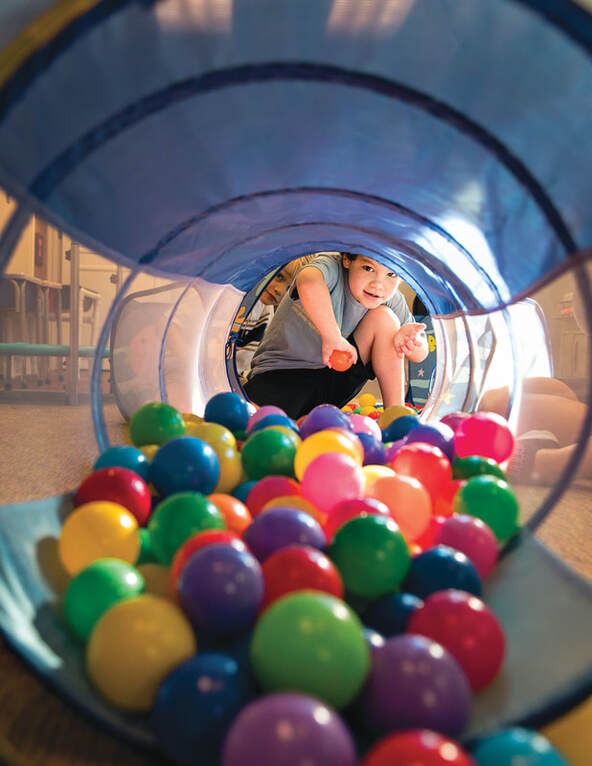 As a parent, you are committed to providing your child with the very best. As your partner in driving positive outcomes, Invo Behavior and Therapy Services shares in that commitment with you. Invo is the nation’s leading provider of effective, evidence-based behavior and therapy services. Invo offers a comprehensive array of behavior and therapy services to children from birth through 21 in school, home, and center-based settings. Treating the Whole child, Empowering Families The services we provide are family centered, developmentally supportive and promote children’s social and functional participation in their household and peer environment, while they prepare for many of life’s transitions. We offer a comprehensive array of behavior and therapy services including: Applied Behavior Analysis (ABA) Therapy Speech and Language Therapy Social Groups Occupational Therapy Physical Therapy Feeding Therapy Early Learners Groups Toilet Training Measurable Outcomes Invo Behavior and Therapy Services takes great pride in driving meaningful progress through the services we provide. In fact, 89% of clients report our services improved their quality of life. 75% of our children achieve their goals in the targeted number of hours, meeting goals on-time means children can get the most out of their time spent with therapist.
by Invo Behavior & Therapy services AutismHomeSupport.com | 844-AHSS-ABA What is autism?
Autism is a neurological condition that usually appears in early childhood. “Autism” and “Autism Spectrum Disorder” (ASD) are used interchangeably and include symptoms such as difficulty with communication and social relationships. Every person with ASD has a unique combination of challenges and strengths. There’s a common saying: “If you’ve met one child with autism, you’ve met one child with autism.” How common is autism? In 2018, a Centers for Disease Control study estimated that 1 in 59 children is diagnosed with autism. This is a 15% increase from the 2016 report. Autism occurs more often in boys than girls, with 1 in 37 boys being diagnosed with ASD and 1 in 151 girls. How can I tell if my child might have autism? A 6-month old with autism might not make eye contact or smile at people. By one, a child may not respond to her name, babble or point to communicate. Many children with autism don’t speak by 16 months or use meaningful phrases by age 2. When can autism be diagnosed? Children can be diagnosed as early as age 2, although many parents notice signs earlier. Studies show that at least one-third of parents noticed a problem before their child’s first birthday, and up to 80% saw issues by the child’s second birthday. If you’re concerned, make sure your pediatrician conducts an M-CHAT evaluation at 18 and 24 months to determine whether your child is at risk. Parents can also download the M-CHAT online (https://www.m-chat.org/) and do the test themselves. If results indicate that your child is high-risk or you’re worried, have your child evaluated by a developmental pediatrician or a neurologist. Why is an early diagnosis important? Numerous studies show that children who are diagnosed early and receive intensive therapy have better outcomes. The earlier the diagnosis, the more time there is for therapy to help a child learn age-appropriate skills, improve communication and reduce challenging behaviors before starting school. What services are available for children with autism in Jacksonville? Jacksonville offers many options for people with autism. Young children often start with a program called “early intervention” that provides a few hours of speech, occupational, developmental and/or physical therapy each week. However, research shows that up to 40 hours a week of Applied Behavior Analysis (ABA) is the most effective therapy to help children and adolescents with ASD learn age-appropriate behaviors, and improve communication and social skills. A scientifically proven therapy, ABA is the only treatment for ASD that’s been endorsed by the U.S. Surgeon General and the American Academy of Pediatrics. Many area organizations offer intensive ABA therapy. For example, Invo Behavior & Therapy services provides in-home ABA throughout Jacksonville for ages 2 to 23. We also offer center-based therapy in Belfort Oaks location and will be opening another center in Lake Gray soon. The Case for Early DiagnosisYou can’t stop worrying about your toddler. He’s two years old, but usually doesn’t respond to his name. Every toddler has tantrums, but your son’s are epic and can be caused by something as simple as having lunch early.
Your pediatrician is reassuring. He reminds you that kids develop at different rates and suggests giving your son time to catch up. A year later, you’re even more concerned, because your son is harder to handle and actively avoids playing with other children. The doctor refers him to a few hours of speech and occupational therapy each week. This is often called “early intervention” and is designed to help children get ready for school. A friend suggests your son might have autism spectrum disorder (ASD). No, you say. That’s not possible. Something might be “off” with your son, but he doesn’t have autism. This is a common scenario. Parents are so scared at the idea of their child having ASD that they avoid it at all costs. Yet pursuing a diagnosis as early as possible is the key to transforming fear into hope and a promising future. The Earlier, The Better It can be frightening to learn that your child has Autism Spectrum Disorder since there is no cure or a definite prognosis. But the sooner your child is evaluated, the sooner you can start making progress. If your child does have autism, a diagnosis as early as 2 years old is considered reliable. It is also the first step in identifying your child’s unique needs and the best combination of therapy and services to help. Every child with autism has unique opportunities and challenges. The developmental pediatrician who evaluates your child may recommend a combination of therapies that may include speech, occupational, physical and Applied Behavior Analysis (ABA). ABA is a scientifically proven therapy for improving communication, reducing difficult behaviors and building life skills. It is the only autism treatment that has been endorsed by the U.S. Surgeon General and the American Academy of Pediatrics. ABA also works well with other therapies. Start Now Most parents don’t know that it can take six to nine months to get a child assessed by a developmental pediatrician. After a child receives a medical diagnosis of autism, it typically takes two to four months to research therapy providers and get insurance approval. If you don’t start the process until your child is five, he won’t start intensive therapy until she’s about six. But if your child is diagnosed at two or three years old, she’ll have many additional years to make progress. She will also have more time before starting school to gain new skills and reduce challenging behaviors. From Fear to Hope Parents who avoid an ASD diagnosis are understandably trying to protect their child and handle their own worries. Unfortunately, that doesn’t usually happen. Without a diagnosis and intensive therapy, the child’s challenges grow – and so do the parents’ fears. Getting an early evaluation and diagnosis is the most important step you can take to help your son or daughter. An early diagnosis can transform fear into hope, opening the door to new options and a bright future. by Thomas Altro *from the Florida Autism Center Blog  Okay, here is a confession – I really like pizza. In fact, I would be willing to help a friend move into her new house for some pizza. However, if my friend were to ask me to help her move into her house, wash her cars, walk her dogs, and mow her lawn, I am not so sure that pizza would be quite worth the effort. The point of this silly example is to illustrate that the “pay off” should be balanced with the effort involved in your child’s response. If your child frequently engages in problem behavior after completing two or three problems on a worksheet of six math problems, planning ahead of time to give your child a brief break after completing a single math problem rather than the entire worksheet will likely be more effective in increasing compliant behavior when working on worksheets. In order to identify something that may act as a reinforcer, it is also important to watch your child to get a sense of what he or she is interested in or motivated for. Your child’s interests and motivation may change from moment to moment for a number of different reasons. For example, a skittle is less likely to act as a reinforcer if your child has just finished dessert than if he or she is hungry for sweets. The toys your child chooses and plays with the longest from a group of other toys are more likely to act as reinforcers than those he or she ignores or plays with very little. The important thing to remember is this: Follow where your child’s interests and motivation leads you and you will likely find out what will be reinforcing for him or her in that moment. Reprinted with permissionfrom the Florida Autism Center www.flautism.com with a new location in World Golf Village. by Teri L. Wesselman, Owner, Brain Balance Sure signs of UNDER-connectivity in your child’s brain can be detected in his behavior, academic skills, and/or social skills. For example, is your child’s behavior disruptive in the classroom to the extent it interferes with his learning and/or the teacher’s ability to teach? Is homework time complete mayhem? Is your child really bright yet struggles to make and/or keep friends? Is your child very athletic but struggles with reading, spelling, and/or math? Are these challenges unduly placing a great deal of stress on the entire family and/or your marriage? If you answered “YES!” to one of these questions, then most likely your child’s brain is UNDER-connected! Children who have UNDER-connectivity in the brain are typically diagnosed with or suspected of “having” ADHD, Autism, Asperger’s Syndrome, Dyslexia, ODD, OCD, Tourette’s, Learning Processing Disorder, and other learning disabilities. Under-connectivity does not imply brain damage or a brain pathology. In fact, under-connectivity is simply representative of a “functional disconnect” in areas of the brain, especially between the two hemispheres, where communication between the two is broken or impaired. As a result, one hemisphere of the brain becomes STRONGER and FASTER while the other becomes WEAKER and SLOWER. This communication can be compared to one side using high-speed broadband connection to communicate while the other side is still relying on an old dial-up modem. With a lack in balance and effectiveness in communication, noticeable academic, social, and behavioral difficulties arise. These difficulties can significantly impact one child more so than another. And to what degree these differences impact a child is what determines the child’s diagnosis. Typically, a child with a RIGHT brain weakness/delay can be described as: clumsy, hyperactive, anxious, impulsive, distractible, emotionally reactive, socially awkward and/or immature, having obsessive/repetitive behaviors, having allergies/asthma, and lacking interest in sports. Most RIGHT brain weak children who have been formally tested are diagnosed with ADHD, Autism Spectrum Disorder, OCD, Non-Verbal Learning Disorder, and Reactive Attachment Disorder. A child with a LEFT brain weakness/delay typically displays symptoms such as: poor math, verbal, and/or spelling skills, poor decoding skills, fine motor problems, auditory processing difficulty, poor memory for details, missing the small details, low self-esteem, lacking motivation, and having a weak immune response (catches whatever is going around). LEFT brain delayed children are typically those diagnosed with Dyslexia, Expressive/Receptive Processing Disorder, and other learning disabilities. Regardless if your child exhibits more RIGHT or LEFT brain weakness symptoms, addressing the root cause, the faulty communication between the two hemispheres, with a holistic, multi-sensory approach will restore balance within the child. Through intense and frequent sensory, motor, and cognitive activities directed exclusively to the weaker hemisphere accompanied with nutritional support to achieve optimum brain and body function, development of new pathways and stronger connections within the weaker regions of the brain are realized. These new pathways and improved connections increase processing speeds which promote and enhance communication between the right and left hemispheres. Balance is restored resulting in improved self-modulation, increased focus and attention, boost in self-confidence, and a dissolution of disruptive behaviors leading to improved academic skills/grade, increased self-awareness and hence, development of appropriate social skills. Such balance restoration brings harmony and healing to the child and the family. The Brain Balance Program does all the above, but most importantly, brings hope to families of children who suffer with behavioral, social, and academic challenges. The specialized achievement center utilizes a drug-free, multi-faceted approach to address the underlying issues in the learning disorders, diagnosed and undiagnosed, that afflict so many precious children today. |
AuthorVarious Local Writers Archives
March 2022
Categories
All
|
Proudly powered by Weebly
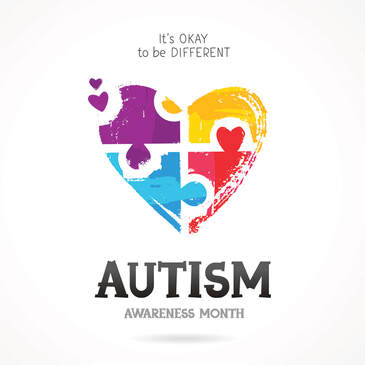

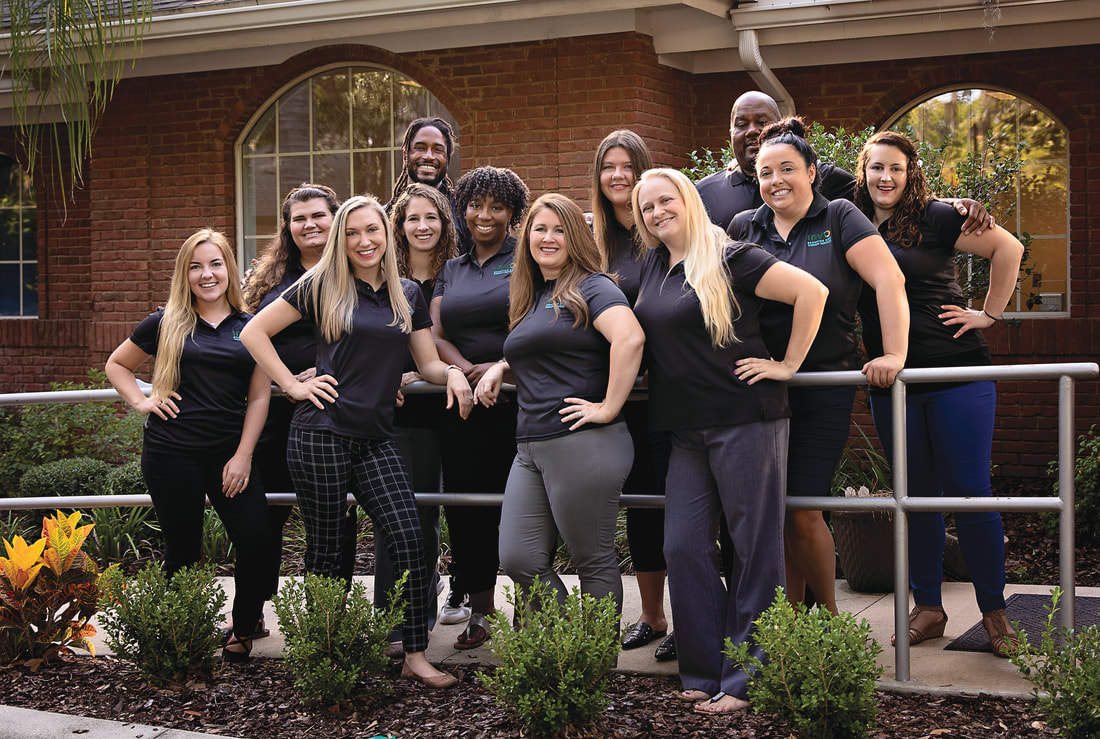
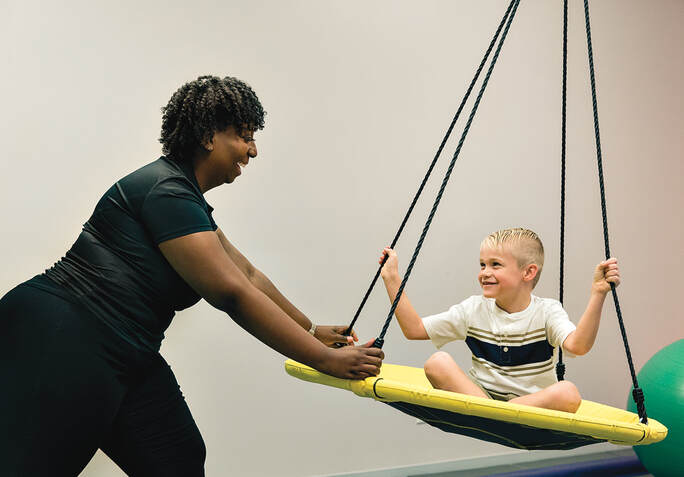
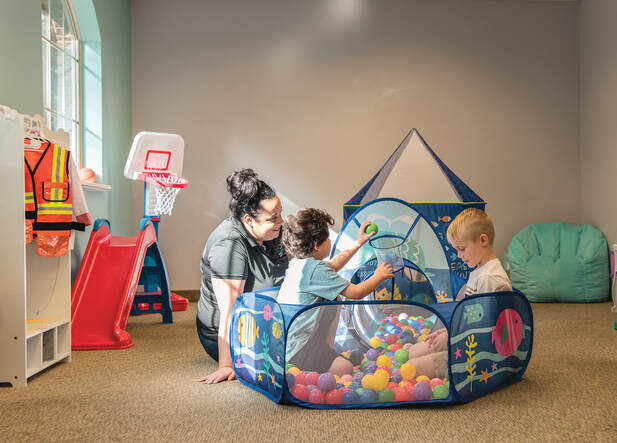
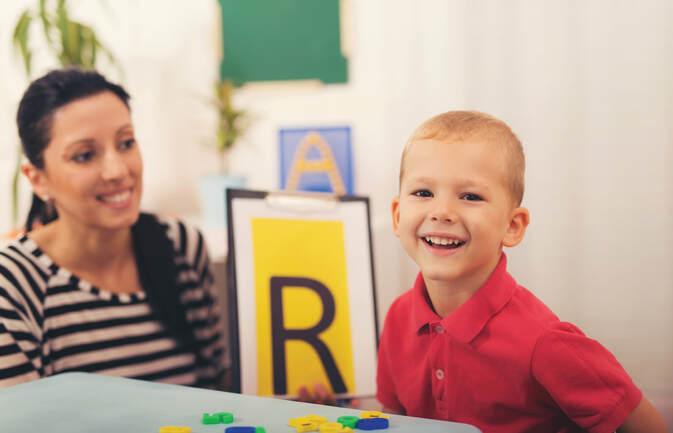

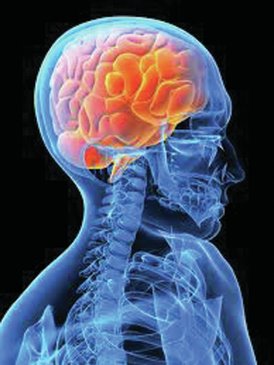
 RSS Feed
RSS Feed
